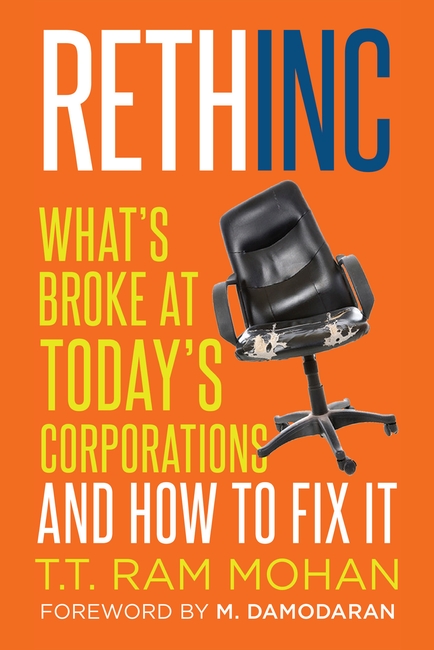
Corporations are crucial to society’s well-being. Yet, not many have chosen to adapt themselves to the expectations of employees and society at large in the times we live. In Rethinc, Ram Mohan identifies the three main problems that ail companies, and proposes ways in which these can be combated. Most companies are still run from the top and make next to no attempts to involve employees at the lower levels in decision-making. Executive compensation has spiralled steeply in recent years because the process of determining it is seriously flawed. Boards of directors are ineffective and have abetted the cult of the charismatic CEO who is expected to work wonders.
Rethinc contends that the solution lies in the near-total dismantling of hierarchy or the creation of a ‘bossless’ organization. In such an organization, the structure is flat, employees operate through self-driven teams, there is peer review, freedom to express oneself, power rests on one’s contribution and not one’s title, and the organizational purpose goes beyond the making of profit. There are limits on variable pay linked to performance and pay is more egalitarian. Board effectiveness is ensured through a very different process of selection of independent directors. The office of the CEO is demystfied, and it is the system that is the star, not the individual. Once all this is done, we will have an successful organization that is also a humane organization-an organization in which the employees are raring to get to work every day.
Imprint: Random Business
Published: May/2015
ISBN: 9788184007930
Length : 320 Pages
MRP : ₹499.00